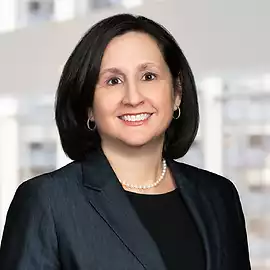In September 2020, the U.S. Department of Justice (“DOJ”) and the U.S. Department of Health and Human Services (“HHS”) Office of Inspector General (“OIG”) announced its annual healthcare-related “takedown.” The takedown, which involved enforcement actions that actually occurred over numerous months preceding the press event (and as such, the reference to a “takedown” is a misnomer”) targeted alleged schemes that related to opioid distribution, substance abuse treatment facilities (“sober homes”), and telehealth providers, the latter of which served as the focus of the enforcement activity. In all, 345 defendants, across 51 judicial districts were charged with allegedly submitting more than $6 billion in false and fraudulent claims to federal health care programs and to private payers and almost 75% of that amount involve telefraud.
As we have previously reported, opioids have been a large focus of DOJ in the past few years in an attempt to stem the opioid epidemic through increased enforcement and this takedown is a continuation of those efforts. DOJ stated that the charges involved in the opioid-related takedown involved the submission of $800 million in false and fraudulent claims to Medicare, Medicaid, TRICARE, and private insurance companies for treatments that were allegedly medically unnecessary and often never provided. DOJ also continued the trend of charging medical professionals with the illegal distribution of opioids (or operating pill mills). Providers need to be mindful of safe opioid prescribing guidelines, develop and implement rigorous compliance programs, and keep up to date on ever shifting federal and state laws in this area.
Tied into the opioid crisis has been the rise in popularity of treatment for drug and/or alcohol addiction as well as the necessary costs of testing and treatment of those patients. The “sober homes” cases announced by DOJ include charges against more than a dozen individuals in connection with more than $845 million of allegedly false and fraudulent claims for tests and treatments. The subjects of the charges include physicians, owners and operators of substance abuse treatment facilities, as well as patient recruiters. Those providers in the substance abuse treatment space should be mindful of providing appropriate utilization of therapies and tests and actively monitor their patient generation/marketing activities for fraud and abuse implications.
Over the past few years, we have been predicting that telehealth is ripe for enforcement. Although we have seen enforcement activity involving telehealth providers in the past, this is the first time that DOJ/HHS has focused so sharply on telehealth providers as the target of a major takedown. The 2020 Takedown is a warning to those in the telehealth industry to pay special attention to compliance infrastructures and efforts especially as use of telehealth to serve patients expands, and related regulations loosen in light of the COVID-19 pandemic.
For more of our analysis of the 2020 Takedown as it relates to telehealth and telefraud please see our article published in the November 4, 2020 issue of the New Jersey Law Journal, available here.
Blog Editors
Authors
- Board of Directors / Member of the Firm
